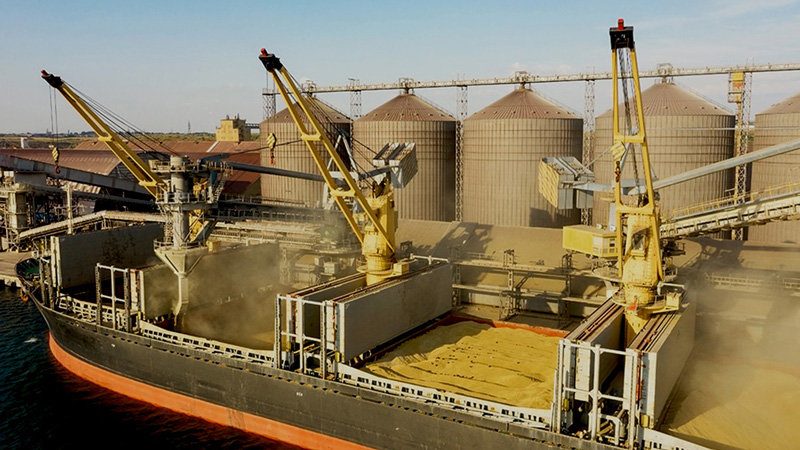According to the UN Environment Programme, about 800 million people are deprived of food, gradually tilting the population towards hunger, which is one of the basic amenities needed to lead a healthy and productive life. The goal of “Zero Hunger,” to eradicate hunger and make the world free from it, is the immediate response of national, regional, and international concern, which should be achieved by 2030 by every nation according to the SDG. In order to achieve this, there are many challenges, such as poverty, economic crisis, governance, food insecurity, lack of fertile land for agriculture, climate change, violence, education, and policy, etc. The concern of hunger is progressively better in the regions of Asia and Latin America, but the worst rate was seen in West Asia, the Caribbean, and subregions of South Africa which are impacted according to the State of Food Security and Nutrition in the World Report 2023. One such imbalance in hunger is the non-availability of food caused by insecurity.
Domestic price inflation was elevated according to the country’s consumer price index, which further drew concern for food security. The 2023 global agency report on food security has highlighted the inflation rate for cereal, agriculture, and exports, which was as high as 10%, 6%, and 4%, respectively. In addition, the price of wheat and maize has increased by 14% and 12%, respectively. There was a drastic inflation rate seen among low and middle-income countries; the countries had more than 5% inflation. Those countries with the highest percentage inflation were low-income countries at 63.2%, lower middle-income countries at 79.5%, and upper middle-income countries at 67.0%. Many other countries faced double-digit inflation. In addition, 78.9% of high-income countries faced high food price inflation. The World Bank report on global hunger in 2022 was 9.2% and 7.9% in 2019, i.e., 691 to 783 million in 2022 and 122 million in 2019. The FAO report predicts that until 2030, about 600 million people will be chronically undernourished, which highlights the challenges in combating it.
The Ukraine-Russia war had disrupted the global economic balance, creating a huge break in the global economic market. As Russia and Ukraine were the major producers of agricultural and food commodities, this major crisis disrupted the food chain globally. The FAO index of food prices for international markets was extremely high in 2022 due to the rising import cost of food. Countries that rely on importing food faced huge food scarcity due to the rise in food prices and barriers for importing food products.
Russia withdrawing black seed grain initiative grew concern in global economy
There were two agreements signed on July 2022. The agreement would be renewed every 120 days, but that was brought down to 60 days, i.e., up to May 18, 2023, as per Russia’s demand, but the extension of agreement was only renewed if the supply chain of agricultural commodities in Russia is transported smoothly under the authority of the European Union, the United States, and Britain. A memorandum of understanding was signed between the UN and the Russian Federal Government to allow agricultural and fertilizer products unrestricted access to the global market. The second agreement was between the BSGI-initiated Russian Federation, Turkiye, and Ukraine, with UN leadership in exporting grains, fertilizers, and agricultural commodities. Through the BSGI agreement, along with UN FAO, WFP has provided food security to 45 countries across three continents by exporting more than 32 tonnes of agricultural commodities. By the initiation of the agreement, agricultural commodities were low-priced, as reported by the FAO food price index. It also reported that a drastic price decline in the global market was seen and difference in the price were 32.4 points (June 2022-2023) i.e 122.3 points was on June 2023 and 154.7 points on June 2022, estimating the cost of affording the products, whereas June (2022–2023) saw a price drop of meat to 8 points, dairy products to 33.4 points, cereal to 40 points, oils to 96 points, and the price of sugar did not have any drop as the rate was high at 34.9 points. The price range had benefited people in terms of affordability, jobs, and exchange rates. With this agreement, WFP could provide 7,25,000 tonnes of wheat to countries such as Afghanistan, Ethiopia, Kenya, Somalia, Sudan, and Yemen.
The agreement on the Black Seed Grain Initiative (BSGI) was formally declined by Russia. As the initiative was an agreement between the UN and Turkiye, which was done in support of importing grains and seeds to those nations that wanted to import, The BSGI has facilitated nations to export their agricultural products to developing countries that are dependent on imports, which is benefiting both the Ukrainian Farmers as well as nations that are receiving imports. This agreement has created a smooth functioning of the global food market, but now the Russian denial of continuing the agreement has caused drastic changes in the global food chain. The agreement helped developing countries in affording grains and oilseeds, about 57% of the 33 tonnes were supplied from Ukraine.
Before the denial of BSGI by Russia, the shipment was declined. Only 1.3 tonnes of grain and oil seeds were exported in May 2023, which remained the lowest export till date, and the threat in shipping made no initiative for shipping company to register their vessels in contribute to exporting the agricultural products via sea. This denial of agreement created future concerns toward food security arising from importing countries, which will further widen the consequences to inflation, poverty, economic problems and health-related problems.
By considering the problems, Ukraine has made a backup plan of insurance to maintain the grain shipment. The insurance of $ 500 million was offered to the shipping company to compensate for the damage caused by transportation across the Black Sea. The export was also carried on through an alternate sea route along the Danube River, which did not recover the global market. The urge to renew the BGSI in a recovering global market was found to be high due to the difference in exports from an alternate route by Ukraine. If the BSGI does not renew until August 2023, this will impact wheat and barley production through price rises and market variation. This problem drew a market disruptions caused during March and April 2022.
In the 2022–23 season, Ukraine projected to export 45.5 million tonnes of grains, which were divided into 27 million tonnes through the Black Sea route and 18.5 million tonnes through alternative routes of the E.U. solidarity lane, Ukrainian Danube ports, and Romanian port Constanza. The Black Sea route would benefit Ukraine due to its easy access to the global market and maritime trade route, which avoid transport costs and time compared to other routes. The concern of renewing BSGI was muted as a future aspect, but the international market has predicted the consequences in coming years, such as unemployment due to low export volume, a high frame gate price, and a high storage cost due to an extended period of storage.
This agreement was considered progress in achieving food security for many poor nations. The role of UN agencies in supplying food grains to low-income countries was eased. This agreement has impacted Ukraine, the global market, and Importing countries. Thus, if Russia agrees to the renewal of the agreement, the global market would stabilize, and thereby the food grain price and agricultural commodities would reach the countries in need. This agreement would also specify the SDG goals in achieving the target of Zero Hunger, Partnership for goal. The conflict within countries has become the reason of fragile state of the global economy, global issues and the international disputes had widened the challenges in availing the resources. The importance of hunger among nations are highly concerned which must be a important concern in the global discussion such that all possible measures could be enforced in reaching vulnerable countries with dedicated governance and partnership among stakeholders in implementing firm governances.
About the Author: Jencil D Souza is Lecturer and Research Officer at Edward & Cynthia Institute of Public Health ( ECIPH)
Disclaimer: Views expressed are the author’s own. Edward & Cynthia Institute of Public Health or Yenepoya (Deemed to be University) are not responsible for contents or opinions reflected in this article.

Jencil D Souza
Jencil D Souza is Lecturer and Research Officer at Edward & Cynthia Institute of Public Health ( ECIPH)
-
Jencil D Souza#molongui-disabled-link
-
Jencil D Souza#molongui-disabled-link
-
Jencil D Souza#molongui-disabled-link




